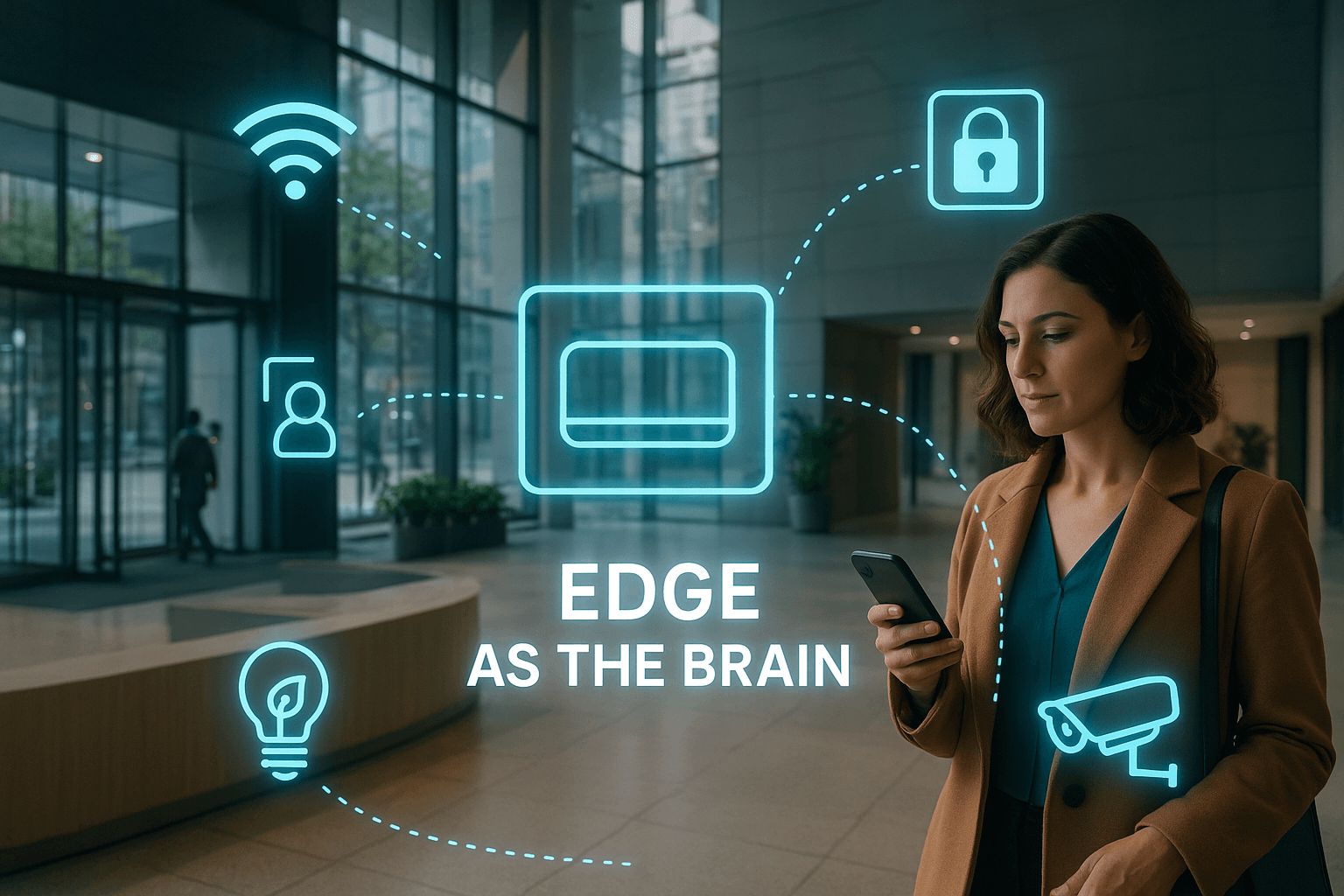
Cybersecurity for Retail: Essential Guide
Cybersecurity is paramount for the retail industry as it faces increasing threats each year.
Retailers must navigate various challenges from phishing attacks to ransomware.
Here at Shirikihub, we understand the importance of protecting your business and customer data.
What Are the Current Threats?
Retailers face a wide array of cyber threats that can disrupt operations and damage customer trust.
Types of Cyber Attacks
Phishing attacks are one of the most prevalent threats in retail. These attacks trick employees into revealing sensitive information, leading to unauthorized access to customer data. Ransomware is another major concern, often resulting in operational downtime and financial losses. Other common threats include credential stuffing, where attackers use stolen login credentials to access accounts, and Distributed Denial-of-Service (DDoS) attacks that can incapacitate online retail platforms.
Data Breach Statistics
Retailers experience a high rate of data breaches compared to other industries. According to Verizon’s 2020 Data Breach Investigations Report, 24% of all cyberattacks targeted retailers. More alarmingly, 42% of data compromised in these attacks is payment information, highlighting the critical need for robust security measures. Moreover, research shows that 62% of consumers lack confidence in the data security of retailers, underscoring the urgent need for better protection protocols.
Real-World Examples
Recent high-profile cyber attacks on retailers demonstrate the severe impact these threats can have. In 2020, a major US-based retailer faced a substantial breach where hackers accessed the personal and payment information of millions of customers. Similarly, another global retail giant suffered a ransomware attack that locked down its systems for several days, leading to significant revenue losses and reputational damage.

To combat these threats, it’s essential to implement multi-factor authentication, regular software updates, and employee cybersecurity training. Tools like antivirus software, firewalls, and encryption can also help mitigate risks. By investing in these precautions, retailers can better protect their data and maintain customer trust. For more practical cybersecurity tips, check out these best practices for digital transformation.
What Are the Best Practices?
Implementing Strong Password Policies
Retailers must enforce strong password policies to safeguard against unauthorized access. Weak passwords are a significant vulnerability, with a study by Verizon revealing that 80% of data breaches result from compromised credentials. Establishing requirements for long, complex passwords and mandating regular password changes can significantly reduce risk. Ensure multi-factor authentication (MFA) is in place, as it adds an extra layer of security, requiring users to verify their identity through additional credentials.
Regular Security Audits and Updates
Conducting regular security audits is critical to identify and address vulnerabilities before they can be exploited. According to a report by Positive Technologies, 94% of analyzed applications contained vulnerabilities, underscoring the need for continuous monitoring. Schedule bi-annual security audits and ensure software and systems are up-to-date. Retailers should prioritize patch management, as outdated software often provides an entry point for attackers. Utilizing automated tools for vulnerability scanning can help maintain a robust security posture.
Employee Training and Awareness Programs
Employees are often the first line of defense against cyber threats. Training programs focused on cybersecurity awareness are essential. Research from the Ponemon Institute highlights that 52% of data breaches involve human error. Regular training sessions should cover phishing detection, password security, and safe internet use. Implementing simulated phishing exercises can help employees recognize and avoid actual phishing attempts. An informed workforce is less likely to fall prey to social engineering attacks, significantly bolstering a retailer’s defenses.

Investing in these best practices not only protects sensitive customer data but also enhances the overall security posture of retail organizations. For more practical advice on securing your digital environment, consider exploring our essential guide on digital infrastructure optimization.
How to Boost Retail Cybersecurity
Firewalls and Intrusion Detection Systems
Firewalls and Intrusion Detection Systems (IDS) serve as the first line of defense against cyber threats. Firewalls control incoming and outgoing network traffic based on security rules, effectively blocking unauthorized access. According to a study by Fortinet, comprehensive firewall solutions can significantly reduce the risk of cyberattacks by up to 50%. For added protection, retailers should pair firewalls with IDS. While firewalls block threat entry points, IDS monitors and analyzes network traffic for suspicious activities, providing real-time alerts.

For small to medium-sized retailers, utilizing unified security platforms like Fortinet Security Fabric, which combines firewalls with intrusion prevention, can streamline security management. Investing in these technologies ensures retailers can detect and respond to threats swiftly, reducing the likelihood of a prolonged breach.
Encryption Technologies
Encryption is a critical technology for safeguarding sensitive data, especially payment information. By converting data into a secure code, encryption prevents unauthorized access during transmission and storage. The use of strong encryption protocols, like Advanced Encryption Standard (AES), can protect against data breaches. According to the Ponemon Institute, organizations using encryption effectively manage to prevent 54% of potential data breaches.
Retailers must employ encryption across all touchpoints, from point-of-sale systems to mobile apps, to secure transaction data. Additionally, securing stored data in databases or cloud services with encryption keys can prevent hackers from exploiting any accessed information. Implementing robust encryption standards not only enhances data protection but also complies with regulations such as PCI DSS, which mandates encryption for payment card data.
Multi-Factor Authentication (MFA) Solutions
Multi-Factor Authentication (MFA) adds an essential layer of security by requiring users to provide two or more verification factors to gain access. According to a report by Microsoft, MFA blocks 99.9% of automated attacks, making it a must-have for retailers. MFA replaces single password reliance with a combination of something the user knows (password), something the user has (smartphone app), and something the user is (fingerprint).
Retailers should integrate MFA into all employee and customer login systems. By partnering with recognized MFA providers such as Duo or Authy, retailers can enhance access security without compromising user experience. Implementing MFA effectively reduces risks associated with credential stuffing and unauthorized access, dramatically improving overall cybersecurity.
Consider exploring our smart retail technology insights to learn how advanced tech can further secure your retail operations.
Conclusion
The retail industry faces a multitude of cybersecurity threats that impact both operations and customer trust. With a significant number of cyberattacks targeting their sector, retailers must be vigilant. From phishing and ransomware to credential stuffing and DDoS attacks, the need for robust cybersecurity measures has never been more urgent. High-profile breaches serve as stark reminders of the potential consequences, including financial losses and reputational damage.

To combat these threats, enforcing strong password policies, conducting regular security audits, and investing in employee training are essential. Technologies such as firewalls, intrusion detection systems, and encryption play a vital role in safeguarding sensitive data. Tools like multi-factor authentication can further enhance security by reducing unauthorized access.
Retailers can also benefit from leveraging comprehensive security platforms like Fortinet Security Fabric to streamline their defenses. By adopting these best practices and tools, retailers can significantly mitigate risks and maintain customer confidence.
Proactive measures are key to protecting valuable data and ensuring the smooth operation of retail businesses. Here at Shirikihub, we emphasize the importance of these security strategies. For more insights, explore our digital transformation strategies and consider integrating advanced tech solutions such as ARED’s Smart WiFi management system and Shiriki Cloud, which offer versatile connectivity and enhanced digital infrastructure. Join the ARED partner program today and secure your place in the future of retail cybersecurity.


